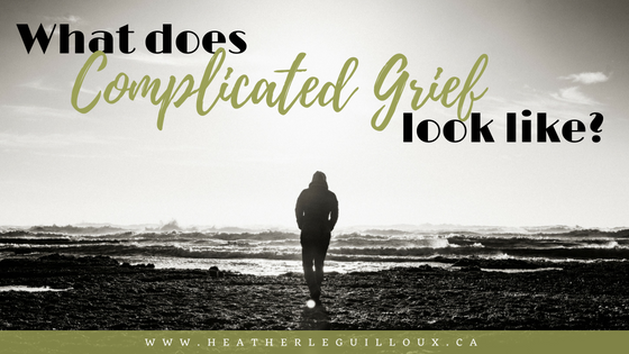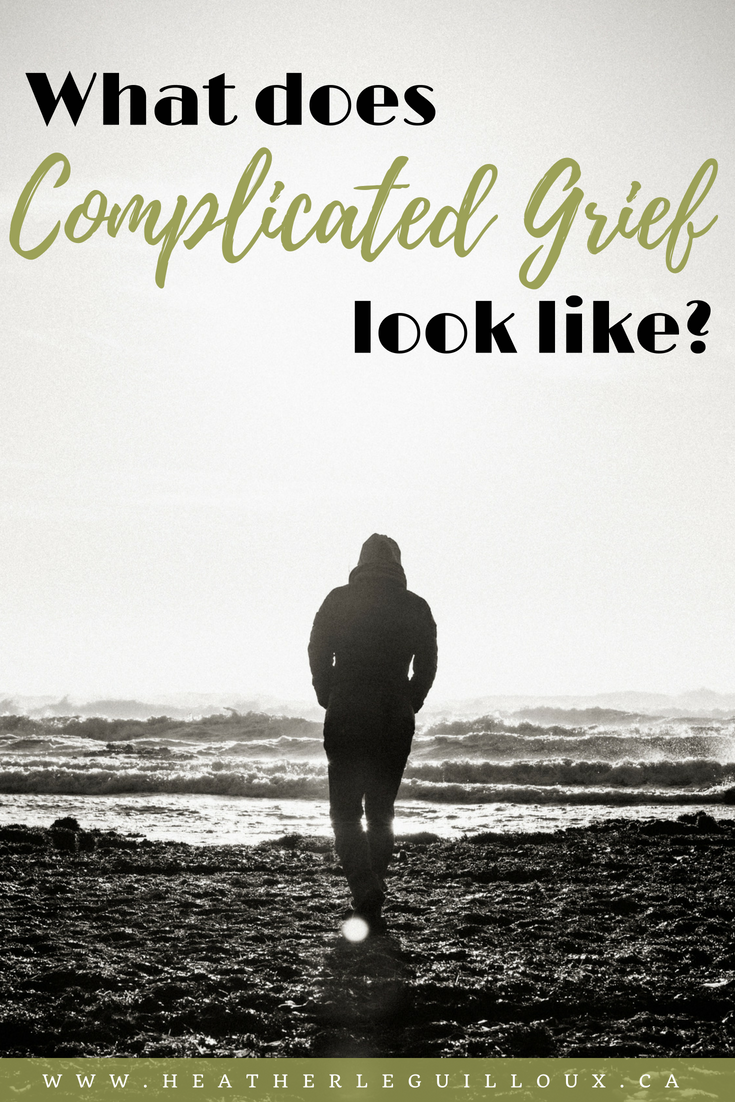|
|Experiencing loss is an undeniable part of life, and whether it is losing a loved one, experiencing a job loss, or going through a major life transition, the grief that accompanies a loss can be incredibly difficult to go through and can cause serious disruptions in an individuals life in many different ways.
Although grief is a natural response to loss, not everyone moves through the stages of grief explained by Elisabeth Kubler-Ross. The grieving process is complex and unique and as such, an individual can experience different symptoms and stages of grief compared to others.
However, for 10-15% of people, the experience of a loss is so painful that moving towards a stage of maintenance or being able to cope with the loss is seemingly impossible. This type of grief is known as complicated grief and in this article we will discover what this type of grief looks like, possible causes, as well as treatment options. Please note: This article does not contain healthcare or therapeutic advice. If you are concerned about your health or well-being, speak with a health professional or visit your nearest medical facility in an emergency. What does Complicated Grief Look Like?
I would imagine that as you are reading this article right now, you have experienced some form of loss in your own life. Perhaps it was losing your favourite toy as a child, or losing a loved one either through a breakup or death.
The connections and emotions we experience after a loss is caused by the meaning we attribute to the person, thing or situation so it makes sense that it can be devastating to have emotions like feeling sad or feeling lost and alone, for example. Complicated grief is different from other experiences of loss and refers to... a persistent form of intense grief in which maladaptive thoughts and dysfunctional behaviors are present along with continued yearning, longing and sadness and/or preoccupation with thoughts and memories of the person who died. Grief continues to dominate life and the future seems bleak and empty. Irrational thoughts that the deceased person might reappear are common and the bereaved person feels lost and alone. ~ The Center for Complicated Grief Typical symptoms of complicated grief:
Take a look at this short video to learn more about how a major disruption in the love and connection towards a loss can impact on an individual. Causes of Complicated Grief
There are many possible causes of complicated grief and these depend on the circumstances of the loss, pre-existing mental health concerns, environmental factors and other factors such as personality traits.
Risk factors for developing complicated grief include:
Treatment Options
Bereavement Therapy
Individuals diagnosed with complicated grief may benefit from specialized therapeutic interventions developed specifically for complicated grief or that help treat disorders such as post-traumatic stress disorder. Often times, individuals who are experiencing intense and enduring symptoms related to their grief are unable to complete daily tasks, let alone leave the safety of their home. In these cases, the option of accessing online therapy could be extremely beneficial for accessing support and treatment from professional therapists. During bereavement therapy, an individual will gain knowledge about the possible causes and symptoms of their specific form of complicated grief, as well as work towards healing the pain and enmeshment they are experiencing in order to find ways of coping with this devastating loss. Support Groups In addition to traditional or online therapy, being able to openly share and receive support and feedback from others who have experienced significant losses in their life may help some individuals. It is often human nature to want to feel connected to others, and being in a supportive environment with others who have had similar experiences of loss can be beneficial at building new connections. Medication Since a diagnosis of complicated grief may likely coincide with other mental health disorders including depression, a doctor or mental health professional may prescribe medication such as antidepressants. Coping Strategies Once an individual has received a proper diagnosis, treatment or support for the experience of complicated grief they are enduring, it can also be important to identify coping strategies that will assist the individual to continue living their daily life and discovering their purpose, hopes, and dreams in life, while working through their grief. Some examples may include:
Going through an experienced of complicated grief is an intensely difficult experience to endure, and for individuals suffering this level of pain from a loss in their life, it may feel as if there is no end to this pain. Yet as we have been able to discover in this article, there are options of support that can help to ease this pain and begin to heal.
MENTAL HEALTH RESOURCE VAULTGreat!Check your email for instructions on how to access the Mental Health Resource Vault. :) Other Articles about Grief:
References: complicatedgrief.columbia.edu, mayoclinic.org
This article is a sponsored post. The links on this page may be embedded with affiliate links that I am compensated for at no additional cost to you. If you or someone you know is in crisis and need immediate support, please reach out to your local emergency service or crisis line.
10 Comments
3/10/2020 01:48:01 pm
You're very welcome, thanks for dropping by the blog!
Reply
3/10/2020 01:49:01 pm
I'm glad this article was helpful, Margaret. Thanks for your comment!
Reply
Love
6/12/2018 10:00:50 am
It takes a lot of empathy to understand grief what you have written is so important.
Reply
3/10/2020 01:49:53 pm
Grief can be tough to understand and is an individual experience for each person. I appreciate you reading the article, Love!
Reply
6/12/2018 12:13:06 pm
Such an awesome, informative post Heather. Thank you for really going into detail and sharing options for relief and treatment. It's so important that we talk openly about mental health, learn more and know what to look out for and hpw to get help. It's ok not to be ok ♡. I appreciate all of the goodness you share hun!
Reply
3/10/2020 01:50:46 pm
Thanks so much for your comment, Sara. It can be so important to start talking about mental health and I appreciate all your support!
Reply
1/7/2019 07:52:37 pm
Than you. I'm dealing with complicated grief, death of my youngest son, husband terminally ill. Good article
Reply
3/10/2020 01:51:41 pm
I'm so sorry to hear about your experiences with complicated grief, Cynthia. I hope that you have had some support along the way with these losses. All the best.
Reply
Your comment will be posted after it is approved.
Leave a Reply. |
Welcome to the blog!↓ That's me, Heather. :)
MENTAL HEALTH RESOURCE VAULTGreat!Check your email for instructions on how to access the Mental Health Resource Vault. Categories
All
Popular Posts// 25 Positive Mindset Quotes
// Self-Care Bullet Journal Spreads // 7 Ways Your Physical Health is Connected to Your Mental Health |






 RSS Feed
RSS Feed
















